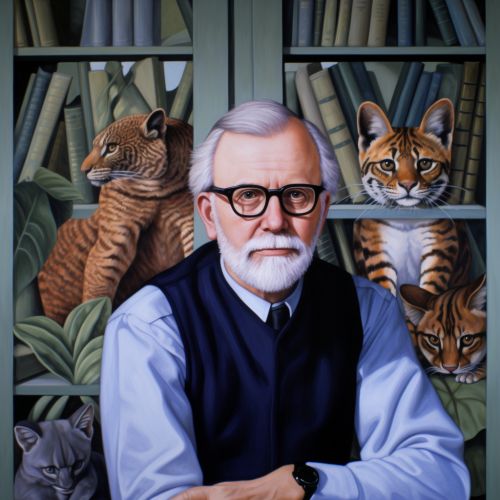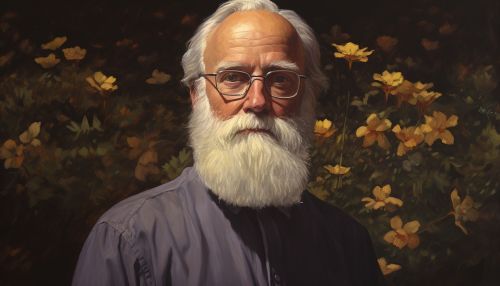W.D. Hamilton
Early Life and Education
William Donald Hamilton was born on August 1, 1936, in Cairo, Egypt. His father worked as a civil engineer, and his mother was a medical doctor. Hamilton's early interest in natural history was encouraged by his parents, and he spent much of his childhood exploring the local flora and fauna. He attended Tonbridge School in Kent, where he excelled in biology and mathematics.


In 1956, he enrolled at the Cambridge University, studying genetics under the tutelage of the renowned biologist R.A. Fisher. His undergraduate thesis focused on the genetic basis of altruism, a topic that would become central to his later work. After graduating in 1960, Hamilton went on to earn his Ph.D. in evolutionary biology from the London University in 1964.
Career and Contributions
Hamilton's first academic position was at the Michigan University, where he started working as an assistant professor of evolutionary biology in 1964. During his time there, he developed his groundbreaking theory of kin selection, which was published in a series of papers in 1964 and 1965.
In these papers, Hamilton proposed that an organism's genetic success should be measured not only by its direct offspring but also by the offspring of its relatives. This theory, known as kin selection, provided a genetic explanation for altruistic behavior in animals, a phenomenon that had previously been difficult to explain through traditional Darwinian theory.
In 1978, Hamilton returned to the UK to take up a position at the Oxford University. There, he continued his research on social evolution, expanding his theories to include the concept of sexual selection. He proposed that certain traits in males, such as the peacock's tail, evolved not because they increased survival, but because they increased the male's chances of being chosen as a mate by females.
Hamilton's work on kin selection and sexual selection has had a profound impact on the field of evolutionary biology. His theories have provided a framework for understanding a wide range of behaviors and traits, from altruism and cooperation to aggression and competition.
Later Life and Legacy
In the later years of his career, Hamilton became increasingly interested in the role of parasites in evolution. He proposed that parasites could drive the evolution of their hosts, a theory known as the parasite hypothesis. This work has had significant implications for our understanding of disease evolution and host-parasite interactions.
Hamilton passed away on March 7, 2000. His contributions to the field of evolutionary biology have been widely recognized. He was awarded the Darwin Medal by the Royal Society in 1988 and the Crafoord Prize in 1993. His work continues to influence the field, and his theories remain central to our understanding of social and sexual evolution.


